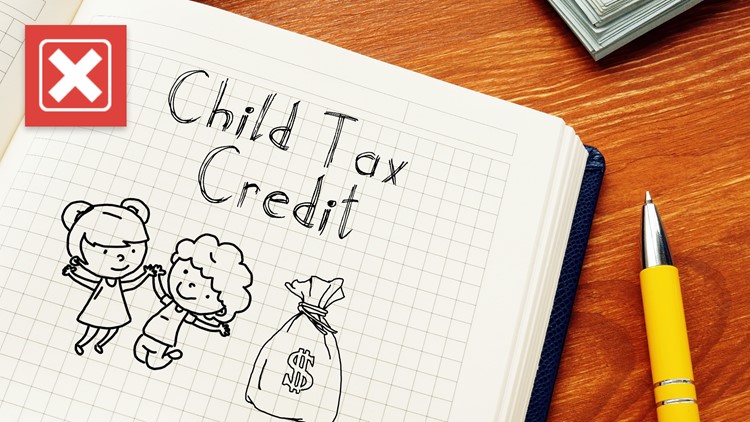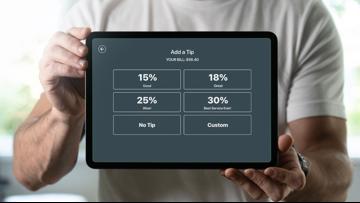Tax filing season is officially underway in the United States. That means many people are looking for answers to their filing questions. Parents in particular have questions about the child tax credit, which helps families with qualifying children get a tax break.
In 2021, the American Rescue Plan allowed 17-year-old children to qualify for the child tax credit. Recent searches show many people online are wondering if that age still applies for tax year 2022.
THE QUESTION
Can parents claim the child tax credit for children who turned 17 in 2022?
THE SOURCES
- Internal Revenue Service (IRS)
- H&R Block
- Mark Steber, chief tax information officer at Jackson Hewitt
THE ANSWER
No, parents can’t claim the child tax credit for children who turned 17 in 2022.
WHAT WE FOUND
The American Rescue Plan temporarily raised the age limit to qualify for the child tax credit from 16 to 17 for the 2021 tax year only. This means parents cannot claim the child tax credit for children who turned 17 in 2022 because the qualifying age is back to 16 and under.
“For tax year 2021, the rules for the child tax credit were modified due to the American Rescue Plan Act. However, that was a one-year provision. The rules in place last year are no longer in place for tax year 2022,” an H&R Block spokesperson told VERIFY.
Mark Steber, the chief tax information officer at Jackson Hewitt, agrees.
“In 2022, children 17 and 18 are too old for their parent/guardian to claim the child tax credit,” Steber said.
The IRS and Steber both say there are seven tests to determine if your family is eligible for the child tax credit for tax year 2022:
- Age: Your child must have been under the age of 17 at the end of 2022.
- Relationship: The child you’re claiming must be your son, daughter, stepchild, foster child, brother, sister, half-brother, half-sister, stepbrother, stepsister or a descendant of any of those people (e.g., a grandchild, niece or nephew).
- Dependent status: You must be able to properly claim the child as a dependent child. The child also cannot file a joint tax return, unless they file it to claim a refund of withheld income taxes or estimated taxes paid.
- Residency: The child you’re claiming must have lived with you for at least half the year (there are some exceptions to this rule).
- Financial support: The child can’t provide more than half their own support. If you are claiming the child under a Form 8332 from the custodial parent, you and the other parent must provide a total of more than half the child’s support.
- Citizenship: Per the IRS, your child must be a "U.S. citizen, U.S. national or U.S. resident alien," and must hold a valid Social Security number.
- Income: Parents or caregivers claiming the credit also typically can’t exceed $200,000 in adjusted gross income ($400,000 if filing jointly). Depending on how much your income exceeds that threshold, the credit gets incrementally reduced until it is eliminated.
You can claim the child tax credit by entering your children and other dependents on Form 1040, U.S. Individual Income Tax Return, and attaching a completed Schedule 8812, Credits for Qualifying Children and Other Dependents. You can also visit the IRS website to check if you qualify.
While parents won’t be able to claim the child tax credit for their 17-year-old child, there may be another option.
The credit for other dependents is meant for a qualifying relative who is being cared for. There are other conditions that impact whether a parent can claim a 17-year-old child for the other dependents credit, including how long the dependent lived with the parent and the dependent’s income. More information can be found on the IRS website.













